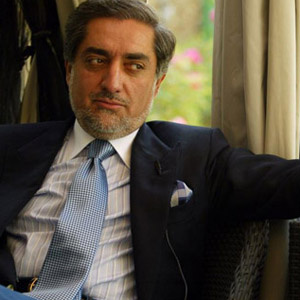To Be or Not to Be?
Is the administration in Afghanistan really an administration? By Omid Maleki

Keep in mind Afghanistan’s three major exports: human, narcotics and terrorists. The main market for the first export is neighboring Middle East countries, especially Iran. Europe is the profitable market of the second product and the United States has to welcome the third. Wontedly or unwontedly, Middle East, Western Europe and America are involved with Afghanistan affairs. Security is the lynchpin that connects threes three geographical areas. Thus, they are searching for the right answer to this problem: Afghan administration, to be or not to be?
National reconstruction project has started since long in Afghanistan, but it has not extended Kabul. A few days of stay in Kabul shows that Hamed Karzai is at most as powerful as a regular mayor. His jurisdiction does not even cover the entire city, as the United States is building itself a CIA bureau. There is no administration in Afghanistan. What is similar to that is an alliance of military officials and political-religious leaders who surround and support Karzai to safeguard their own interests. The Afghan president desperately tries to perform the role of broker between these stakeholders, who, each, have allied with the soviets, Taliban, regional powers and such in a period of their life and have Afghans’ blood on their hand. Such a government is capable of supplying a paltry 12% of its budget. The rest is granted by Western countries.
For the Afghan media, more than resembling a democracy, their country reminds them of a weaponocracy. But what could be done? In a country occupied with pompous slogans such as ‘humane intervention’, the democratic symbols could not be ignored; they should be used to reinforce security.
What has taken place so far has been unsuccessful, but it seems that the occupying forces have come to the conclusion that stability in Afghanistan cannot be achieved through military operations. An administration may have its head in politics, but its feet stand in the society. Hamed Karzai is head of the administration, but as long as stability has grown no social roots in the Afghan community, and security is approached from a political perspective, nothing will change. History has shown that the need for social leadership is not at all less important than the necessity of a political leadership. We may view Abdullah Abdullah’s resignation from runoff election within this framework.
Karzai’s failure to stop the export of the three aforementioned products has revealed that although a necessary option, iron fist is not the ultimate panacea for the Afghan society. The Afghan nation, facing ever-increasing ethnic rifts, is in dire need of social solidarity. Abdullah seems to be the man who can bridge this gap and bring the society closer. Ban Ki-Mon’s visit to Afghanistan and his meeting with Dr. Abdullah shows that the international community believes in the head/foot dichotomy and wants a social base for the Afghan administration. A dual rule could stabilize the country and bring peace of mind to the world. Abdullah’s day of victory is close. Karzai may preside over the administration, but he is not powerful enough to preside at the nation. Abdullah has cast a shadow over Karzai’s political career.
National reconstruction project has started since long in Afghanistan, but it has not extended Kabul. A few days of stay in Kabul shows that Hamed Karzai is at most as powerful as a regular mayor. His jurisdiction does not even cover the entire city, as the United States is building itself a CIA bureau. There is no administration in Afghanistan. What is similar to that is an alliance of military officials and political-religious leaders who surround and support Karzai to safeguard their own interests. The Afghan president desperately tries to perform the role of broker between these stakeholders, who, each, have allied with the soviets, Taliban, regional powers and such in a period of their life and have Afghans’ blood on their hand. Such a government is capable of supplying a paltry 12% of its budget. The rest is granted by Western countries.
For the Afghan media, more than resembling a democracy, their country reminds them of a weaponocracy. But what could be done? In a country occupied with pompous slogans such as ‘humane intervention’, the democratic symbols could not be ignored; they should be used to reinforce security.
What has taken place so far has been unsuccessful, but it seems that the occupying forces have come to the conclusion that stability in Afghanistan cannot be achieved through military operations. An administration may have its head in politics, but its feet stand in the society. Hamed Karzai is head of the administration, but as long as stability has grown no social roots in the Afghan community, and security is approached from a political perspective, nothing will change. History has shown that the need for social leadership is not at all less important than the necessity of a political leadership. We may view Abdullah Abdullah’s resignation from runoff election within this framework.
Karzai’s failure to stop the export of the three aforementioned products has revealed that although a necessary option, iron fist is not the ultimate panacea for the Afghan society. The Afghan nation, facing ever-increasing ethnic rifts, is in dire need of social solidarity. Abdullah seems to be the man who can bridge this gap and bring the society closer. Ban Ki-Mon’s visit to Afghanistan and his meeting with Dr. Abdullah shows that the international community believes in the head/foot dichotomy and wants a social base for the Afghan administration. A dual rule could stabilize the country and bring peace of mind to the world. Abdullah’s day of victory is close. Karzai may preside over the administration, but he is not powerful enough to preside at the nation. Abdullah has cast a shadow over Karzai’s political career.

